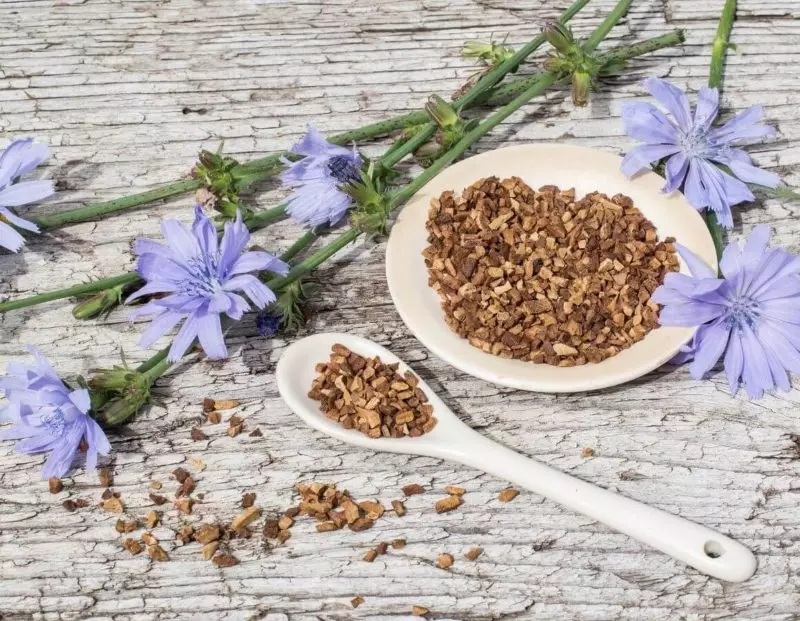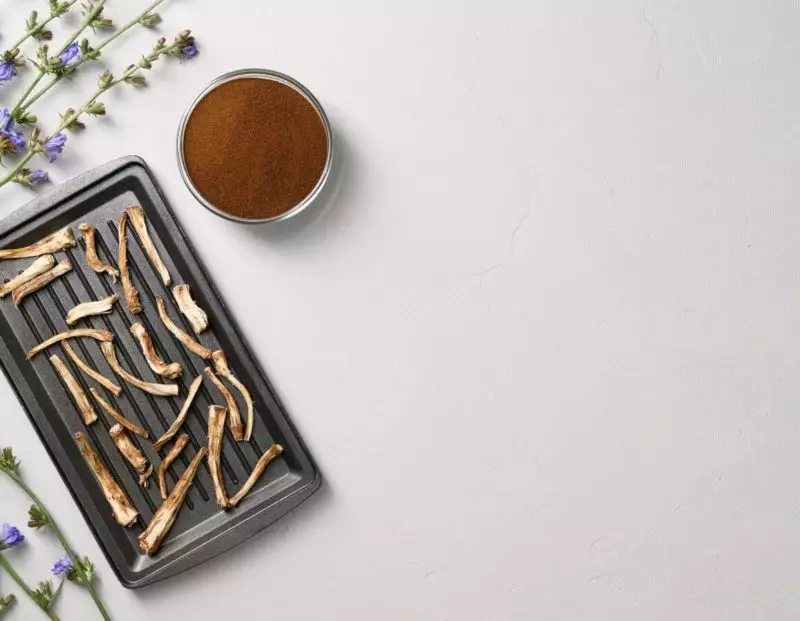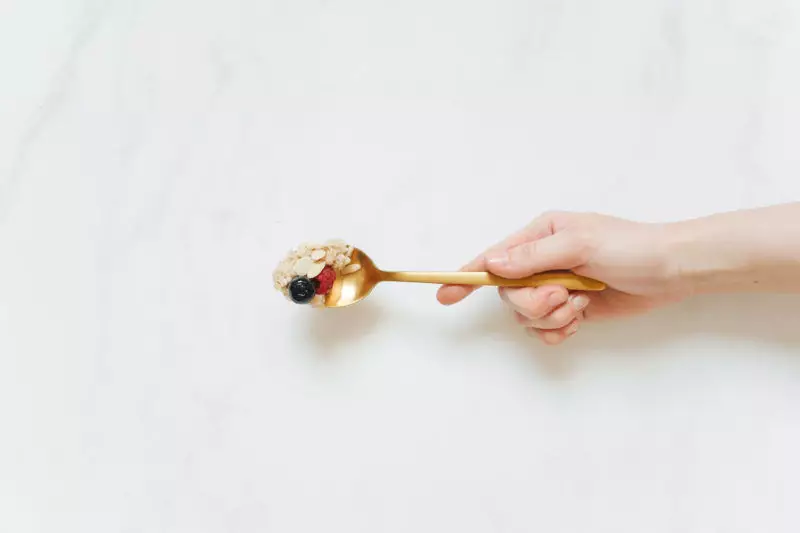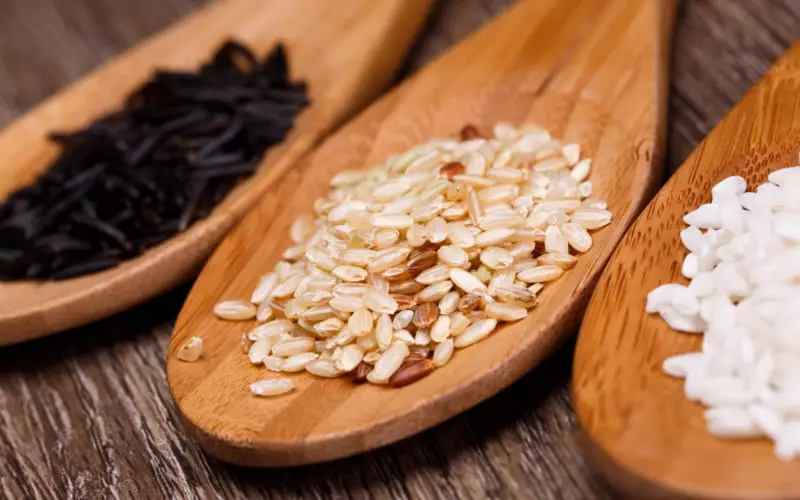
Chicory is a type of plant from the dandelion family, with bright blue, white, or sometimes pink flowers.
Chicory is not popular because of its beautiful blossoms, but instead, because of the nutritional value and potential health properties of its roots, which include antimicrobial and antioxidant activity, blood glucose control, gut health, weight management, and more.
The most common products made from chicory root are inulin fiber supplements and coffee. Chicory root has a similar aroma and flavor to the regular coffee, but is caffeine-free!
This article will guide you through the nutritionl profile of chicory root, the potential health benefits of its consumption, and how you can include this plant into your diet.
Let’s get started!
Why is chicory root healthy?
Chicory root contains limited amounts of the following micronutrients (according to the website NutritionData) [1] :
- Vitamin C
- Vitamin B6
- Folate
- Phosphorous
- Potassium
- Manganese
This plant is rich in prebiotic fiber: fresh chicory roots are composed of about 68% inulin. This is a type of prebiotic fiber often used as sugar replacement due to its slightly sweet taste. [2]
However!
Chicory root inulin is commonly used as a supplemented fiber in processed foods. However, without all the different types of fiber (as we get from a variety of whole foods) isolating one type of fiber is not ideal. It is considered a fructan or fructooligosaccharide and many people do not digest fructans well. This way, chicory root consumption may result in bloating in some individuals. Furthermore, some people may be allergic to inulin. Also, pregnant women are often advised against chicory root supplements consumption.

Chicory root benefits
According to a 2016 study published in the Journal of Carbohydrate Polymers, the consumption of inulin may have the following health effects [3][4]:
- Constipation relief
- Immune support
- Gut health
- Antioxidant and antimicrobial activity
- Blood sugar control
Furthermore, a 2020 study published in the Journal of Functional Foods suggests that chicory root flour may provide cancer protection, antimicrobial effect, and metabolic regulation. [5]
*The study was conducted on mice, where the effects of chicory root flour were more pronounced in male than in female mice. To evidence these effects on humans, more research is needed.
Now, let’s see what different research papers say about chicory root and inulin intake:
Antioxidant activity
Evidence suggests that chicory root extract is rich in antioxidants (including vitamin C and other phytochemicals), which may reduce free radicals damage in the body and support the antioxidant defense system. [6]
Promote gut health
According to a 2017 study published in the International Journal of Food Sciences and Nutrition, chicory root inulin consumption may improve bowel function and stool consistency, relieving acute and chronic constipation. [7]

Immune support
Evidence suggests that the gut-health promoting health effects of prebiotic dietary fiber consumption (including inulin derived from chicory roots) may result in lower colonic pH and immune system support (modulating immune response and signaling, which may further protect the body from pathogens and harmful microorganisms). [9]
Blood sugar control
According to the “Defeat Diabetes Foundation,” the consumption of chicory root may play a role in controlling blood sugar, as well as managing diabetes and preventing complications. [10] The source also suggests that substituting sugars with chicory root fiber (inulin) may significantly reduce blood sugar and regulate insulin production.
Weight management
Evidence suggests that chicory root fiber intake may increase the feeling of satiety and even help individuals reduce their calorie intake by 10%. [13][14] This could help individuals enter a caloric deficit (eating fewer calories than they burn) and achieve some weight loss results.
Antimicrobial activity
A 2011 study published in the International Journal of Research in Pure and Applied Microbiology suggests that chicory root extract may have antimicrobial and antifungal properties, inhibiting the growth of yeast, moulds, and bacteria. [15]

How to eat chicory root?
Chicory root is not a typical plant that you can buy at the store and cook a home.
Instead, in the supermarkets, you can find the plant in the form of tea, coffee, or inulin supplements.
However, before reaching for these supplements/coffee substitutes, consult your dietitian or healthcare provider. They may recommend a diet or other supplements that are better suited for your needs and health condition.
*Consult your dietitian or doctor whether chicory root tea, coffee, and inulin supplements are suitable for you. Sometimes you may need to completely avoid or limit chicory products’ intake because of your health condition.








